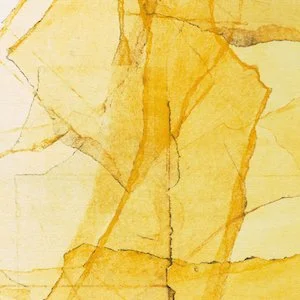Label: Intakt Records, 2025
Personnel - Sylvie Courvoisier: piano; Wadada Leo Smith: trumpet.
Swiss pianist Sylvie Courvoisier and American trumpeter Wadada Leo Smith—two genuinely inventive improvisers and composers—have collaborated before (notably on Courvoisier’s sextet album Chimaera), but Angel Falls marks their first duo recording. Smith, long devoted to this intimate format, brings his singular lyricism, while Courvoisier thrives on spontaneity and discovery. The album, titled after Venezuela’s towering waterfall, was recorded in the precise order presented, with no edits.
“Olo’ Upnea and Lightning” opens with Courvoisier’s wide-interval explorations on prepared piano, interwoven with luminous tonal chords. Smith responds with prayer-like intensity, his trumpet voice feverish yet finely crafted. Shifts from darkness to light define the piece, with both musicians embracing unrestrained expression. “Naomi Peak” follows in a whirlwind of centrifugal force—staccato trumpet bursts meet dizzying piano flutters, interrupted briefly by fragility before bluesy inflections ground the conclusion.
“Whispering Images” floats in a spectral haze of altered piano strings, drones, and muted trumpet, suspended between galaxies and propelled by near-waltzing cadences. By contrast, “Vireo Bellii”—named for a songbird—is playful and brisk, its sparse piano motifs forming oddly constellated patterns against Smith’s oscillation between penetrating cries and mournful restraint.
The title cut, “Angel Falls”, is another example of the duo’s constant communication and sophisticated interaction. Intense and dramatic, the piece probes darker tonalities with a suspenseful cinematic weight. Despite feeling intrinsically cerebral, its abstractions resist predictability.
Angel Falls confirms Courvoisier and Smith’s magnetic rapport. It may feel bulky at times, but their fearless interplay, rooted in both lyricism and texture, cements their place among the most compelling improvisers of our time.
Favorite Tracks:
01 - Olo’ Upnea and Lightning ► 02 - Naomi Peak ► 06 - Angel Falls
























